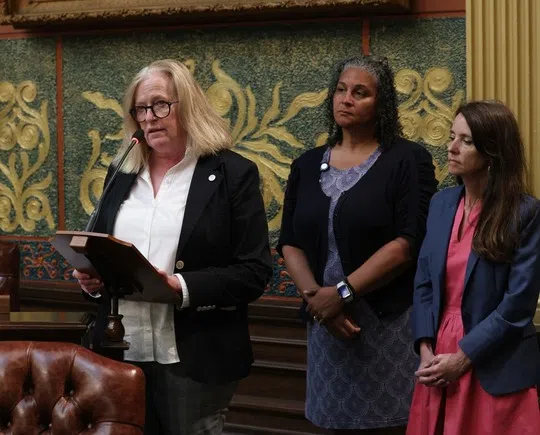Israel: Attack on Hamas military chief denounced, Gaza ministry reports dozens dead

Israel said there was “no certainty” that Hamas military chief Mohammed Deif was killed in an attack on southern Gaza on Saturday. Authorities said at least 90 people were killed in a refugee camp.
The Israeli military said it had targeted Deif and Rafa Salama, a brigade commander, describing them as “two of the masterminds of the October 7 massacre” that sparked the war, now in its tenth month.
The fate of the two remained unclear. Israeli Prime Minister Benjamin Netanyahu said late Saturday evening that there was “no certainty” that either of the two men was killed in the attack.
The deaths in Al-Mawasi, an Israeli-designated “safe zone” where aid groups said hundreds of thousands of people had sought shelter, were condemned by governments across the region.
The Egyptian Foreign Ministry stated that such “crimes cannot be tolerated under any circumstances.”
The Health Ministry in the Hamas-ruled Gaza Strip said there were at least “90 martyrs” in Al-Mawasi, at least half of them women and children, and 300 injured. AFP could not independently confirm the number of casualties.
The Israeli military said of its attack on Deif: “The area hit is an open area surrounded by trees, several buildings and sheds. It was not a tent complex, but an operational area.”
A Hamas statement rejected Israel’s claim that it had targeted Deif, saying it was intended to “cover up the extent of the gruesome massacre.”
Further north, heavy fighting has been raging in and around Gaza City for weeks. On Saturday, the Civil Defense Authority announced that at least 20 people had been killed in an attack on the Al-Shati refugee camp.
In Al-Mawasi, AFPTV footage showed sirens blaring and smoke rising in the distance as men with blankets collected the victims. Some were obviously beyond help and lay dead on the street.
“What have we done?” screamed a woman on the street. “What have we done? We were just sitting on the beach.”
– “Unbridled disregard” –
Israel had asked Palestinians to move to a designated humanitarian area in Al-Mawasi in May as its troops entered the nearby town of Rafah.
Since then, Israel has been accused of killing civilians in attacks on or near Al-Mawasi. In one attack in May, for example, Israel was accused of starting a fire in a tent city that killed 45 people.
Philippe Lazarini, head of the UN Relief and Works Agency for Palestine Refugees (UNRWA), described the area as “sandy, 14-square-kilometer farmland where people live in the open and there are few or no buildings or roads.”
“The claim that people in Gaza can move to ‘safe’ or ‘humanitarian’ zones is false,” Lazarini said on the social media site X.
The UN High Commissioner for Human Rights said in a statement that Israel “continues to use weapons with large-scale effects in densely populated areas,” indicating a “massive disregard for the safety of civilians.”
An Israeli security source, speaking on condition of anonymity, said the attack showed that Israel “will continue to target the top Hamas leadership” even as it “negotiates a hostage-taking operation.”
Gaza’s civil defense said heavy fire was preventing its teams from reaching the “many bodies” scattered on the streets.
“Every time people tried to come closer to save others, they attacked,” said Palestinian Mahmoud Abu Akar.
In Israel, anti-government demonstrators gathered again on Saturday to demand an agreement on the release of the hostages still held in the Gaza Strip. The protest march lasted four days and stretched from Tel Aviv to Jerusalem.
The war began with Hamas’ attack on southern Israel on October 7, which killed 1,195 people, mostly civilians, according to an AFP news agency count based on Israeli figures.
The militants also captured 251 hostages, 116 of whom are still in the Gaza Strip. According to the military, 42 of them are dead.
Israel responded with a military offensive that killed at least 38,443 people in Gaza, most of them civilians, according to a data list released by the Gaza Health Ministry on Saturday afternoon.
– ‘Pressure’ –
Israel and Hamas have been holding indirect talks for months through Qatari, US and Egyptian mediators in an attempt to reach a ceasefire that has not yet been reached and an agreement on the release of the hostages.
Talks took place this week in Doha and Cairo.
Netanyahu continues to insist that any agreement must enable Israel to achieve its war aims – the destruction of Hamas and the return of all hostages.
US President Joe Biden has outlined a plan for a six-week ceasefire that would see hostages released in exchange for Palestinians in Israeli prisons, followed by talks on a complete end to the war.
On Thursday he said: “Both Israel and Hamas have now agreed on this framework.”
“There are still gaps to close, but we are making progress,” he added.
On Saturday, Hamas official Bassem Naim said Netanyahu was the one “obstructing the reaching of an agreement” and called on Biden to put “sufficient pressure” on the Israeli president to reach an agreement.
The war has raised tensions across the region, with Israel regularly trading cross-border shelling with Hezbollah-aligned Hamas in Lebanon, while the Iran-backed Houthis in Yemen have launched naval attacks in a campaign of solidarity with Gaza’s population.
Houthis’ military spokesman Yahya Saree told X after the attack on Al-Mawasi that his group “will not hesitate to expand its military operations … until the aggression stops.”



